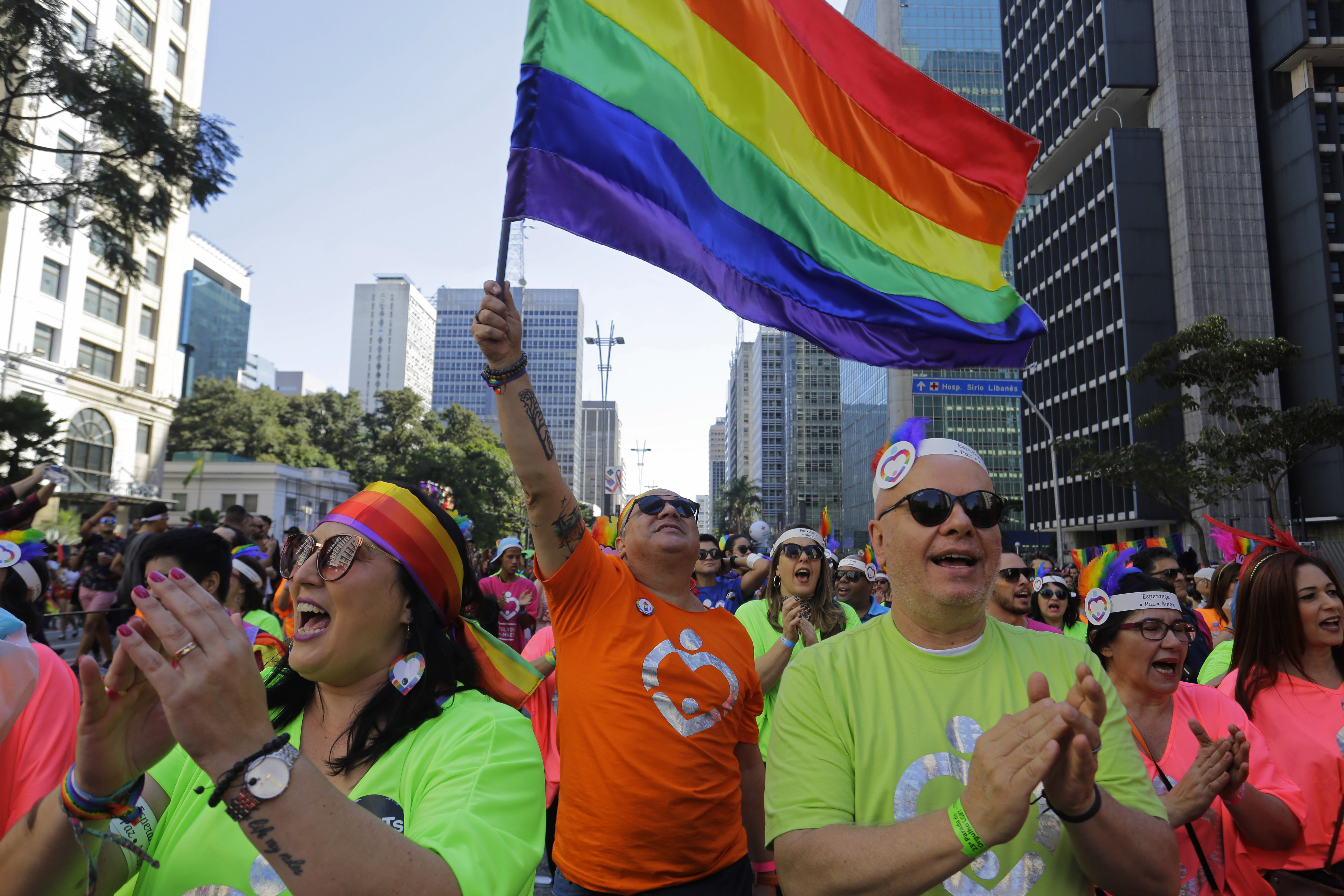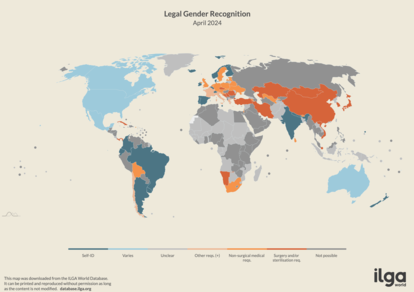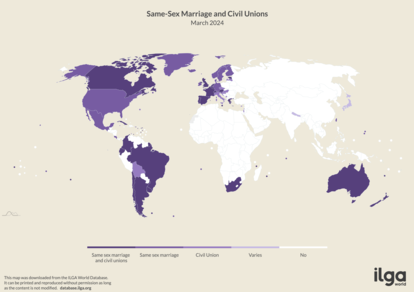LGBTQI+
Being queer in Latin America: Between Legal Equality and Discrimination in Everyday Life

Pride Parade in Sao Paulo
© picture alliance/AP Photo | Nelson AntoineAnyone who thinks that the world is showing its liberal, tolerant, modern, and cosmopolitan face in 2024 is mistaken. Homosexual acts are criminalized in 64 countries worldwide – in 12 of them, consensual, private same-sex sexual acts may even carry the death penalty. The majority of these countries are in Africa, Asia, and the Middle East. Yet, the situation in Latin America remains tense, despite legislative progress in recent years and decades.

Legal Gender Recognition Map April 2024
© database.ilga.orgLegal Framework in Latin America
More than 33 million Latinos identify as part of the queer community. In recent years, many Latin American countries have made legal advances to improve the situation of queer couples and transgender individuals – from marriage equality to rights of self-determination and parenthood. The legal situation here is significantly better compared to other regions of the world.
For example, Uruguay and Costa Rica have been pioneers in recognizing same-sex marriage and allowing adoption by same-sex couples. Argentina passed a self-determination law in 2012 without a single vote against it in the Senate, guaranteeing transgender individuals extensive rights, such as a straightforward change of gender on birth certificates and passports.
In Mexico, the recognition of same-sex marriage and the guarantee of access to the public social and health system in 2022 marked a milestone for the equality of queer persons.
However, improving legal frameworks is only half the truth. As good, right, and important as it is, it only helps if there is also a societal shift towards tolerance, acceptance, and anti-discrimination. And this is not so easy in the polarized, often still conservative societies of Latin America.

Same-Sex Marriage and Civil Unions March 2024
© database.ilga.orgDiscrimination, violence, and disadvantage are still part of everyday life
Without wanting to negate the legislative progress that has taken place in many Latin American countries in recent years regarding the fight against discrimination, inequalities, and legal equality, the community still faces stigmatization, discrimination, and social as well as professional exclusion.
Current statistics provide insights into the realities of queer individuals in the region:
- In Mexico, according to the National Institute of Statistics and Geography (INEGI), the frequency of discrimination against the queer population is twice as high as that against the non-queer population.
- Also in Mexico, 48 trans-women and 33 homosexual individuals were killed in 2022.
- According to a survey by the Peruvian Instituto Nacional de Estadística e Informática (INEI2017), 63% of respondents reported being victims of discrimination and/or violence. Another revealing statistic from a study by the National Electoral Council states that 52% of the representative respondents do not agree with the participation of the LGBTQ* community in politics.
- A study on bullying in Uruguayan schools in 2019 showed that the proportion of students who reported being victims of bullying or aggression in the school environment was 11 percentage points higher among queer youth. It is still not surprising that the data indicate that homophobic and transphobic discrimination and violence negatively affect the academic performance, mental health, and future prospects of students. A study from Colombia even concludes that this discrimination also extends to the children of same-sex couples.
- According to the Latin American Development Bank, there are also statistical disadvantages for members of the LGBTQ* community in the housing, financial services, and labor markets, as well as in access to medical care.
Open Society and Human Rights in the Work of the FNF
An open society, the celebration of diversity, the expression of individual freedom and self-actualization have always been central values of liberalism. Therefore, they are also central to any liberal democracy. Queer rights are human rights. Protecting them is the duty of liberal states, communities, and individuals.
Hence, in our foundation projects, we work together with local partner organizations to intensify education about sexual diversity. Our goal is to strengthen the rights of LGBTQ* individuals in Latin America and to anchor their presence in public discourse and opinion formation. This is done especially in the Andean countries through publications and the organization of events, video podcasts, and communication campaigns. In view of the alarming statistics indicating ongoing discrimination and violence against the queer population, the work of partner organizations such as IPL makes an important
contribution to creating a more inclusive and liberal society where all people, regardless of their sexual orientation or gender identity, can live freely and safely.
An important component of an open and inclusive society is visibility and creating awareness of prevailing stigmas and problems. This is addressed, for example, in a compendium created in Mexico in collaboration with partner organization Article 19, which addresses stigmatizing and discriminatory narratives.
Inclusive employability aims to enable access to the labor market for all groups of society –women, youth, people with disabilities, but also queer individuals – in the same way as the rest of society. Integrative entrepreneurship, in consequence, is another focus of our work, especially in Central America.
Finally yet importantly, diverse projects in the field of strengthening justice also contribute to improving the legal situation for queer individuals: by combating impunity, creating awareness of their own rights, and addressing prevailing stigmatization.
Open Societies and Inclusivity as Core of Liberal Democracies
The equality of the queer community is far from complete. In many parts of the world, including Latin America, there are both advances and setbacks. However, societal prejudices and stigmas are still the social status quo here as well. Therefore, it is important – today and in general – to emphasize: As liberals, we aspire to an open society that respects all individual life plans. Therefore, we cannot afford to discriminate against queer people. We cannot afford to exclude them from our labor market. We cannot afford to lose them as active participants in our society. We cannot afford not to actively involve them in our political system and motivate them to continue improving society.
To address the persistent problems, more than just laws are needed. It requires societal initiative, courage, and above all, perseverance.
As liberals, we continue to fight at the forefront.
